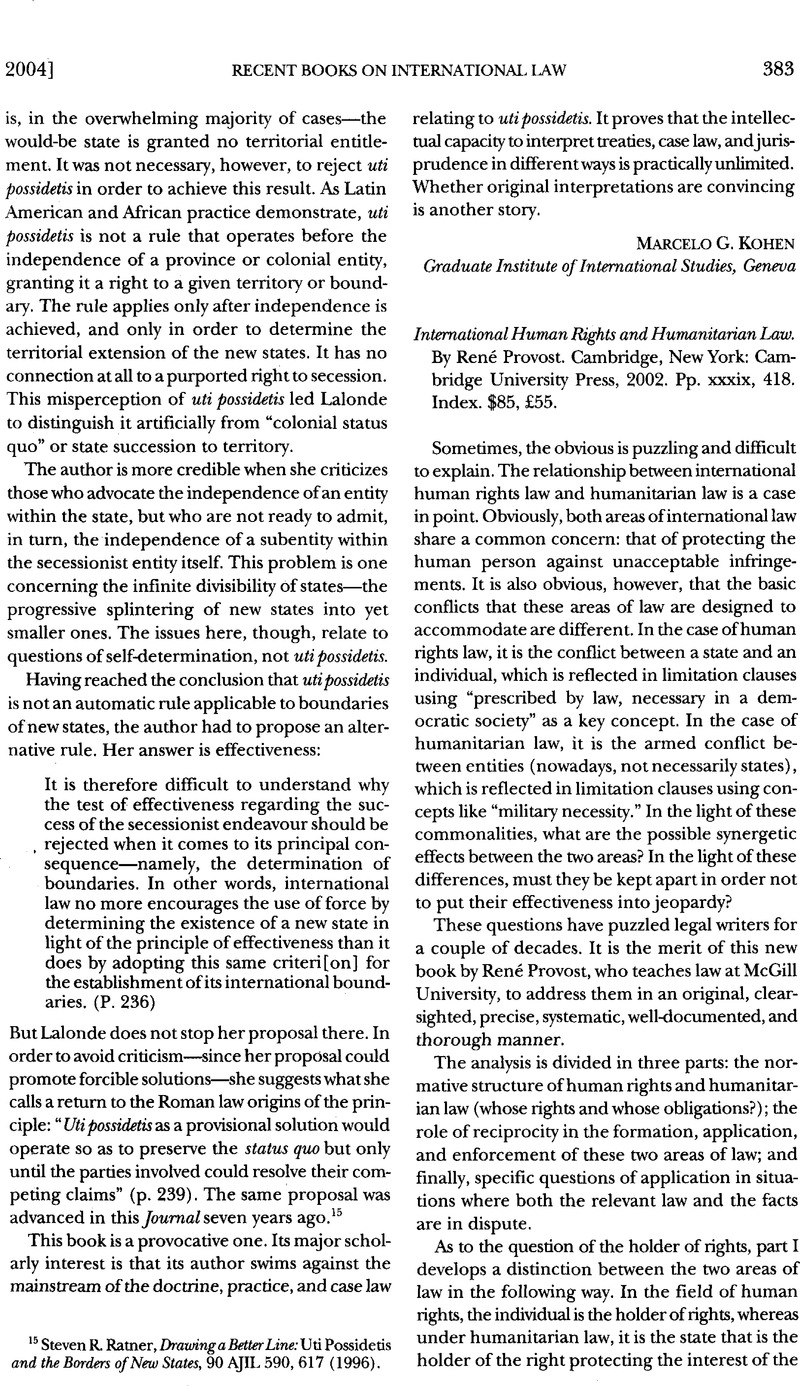No CrossRef data available.
Published online by Cambridge University Press: 27 February 2017

1 Article 75(1) of the Protocol Additional to the Geneva Conventions of 12 August 1949, and Relating to the Protection of Victims of International Armed Conflicts, Dec. 12, 1977, 1125 UNTS 3, states:
In so far as they are affected by a situation referred to in Article 1 of this Protocol, persons who are in the power of a Party to the conflict and who do not benefit from more favourable treatment under the Conventions or under this Protocol shall be treated humanely in all circumstances and shall enjoy, as a minimum, the protection provided by this Article without any adverse distinction based upon race, colour, sex, language, religion or belief, political or other opinion, national or social origin, wealth, birth or other status, or on any other similar criteria. Each Party shall respect the person, honour, convictions and religious practices of all such persons.
2 A very confusing question is the role of reciprocity in relation to reservations (see pp. 140ff), but this confusion may largely result from the legal uncertainties in the law governing reservations.